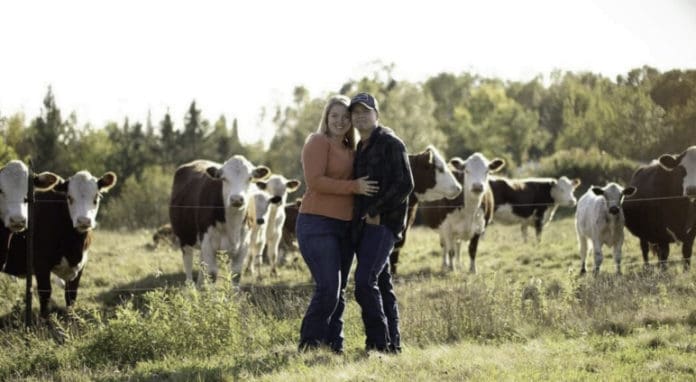The University of Minnesota Farm Family Recognition Program honors farm families from throughout Minnesota for their contributions to the agriculture industry and their local communities. The program has honored Minnesota farmers since 1979. It is coordinated by the University of Minnesota Extension, the College of Food, Agricultural, and Natural Resource Sciences and the College of Veterinary Medicine.
The University of Minnesota Extension’s mission is to “bring Minnesotans together to build a better future through University science-based knowledge, expertise and training.” Every year, at the end of summer, there is a huge event held on 50 acres of land in Redwood County, MN called FarmFest. FarmFest aims to bring together a network of farmers to share their experiences to learn and grow together. The event showcases products, services, and technologies from over 500 exhibitors and vendors. Providing tools and ideas to better help farms expand their businesses. There are educational sessions, family fun activities, product demonstrations, live music, good food and much more, including contests and awards! Farmfest hopes that attendees leave feeling better prepared and supported in growing their family business. The next Farmfest is happening this upcoming summer between August 1st and 3rd. You can find out more information about the event on the website: https://www.ideaggroup.com/farmfest .
“We attended Farm Fest in August last summer. It was so amazing, seeing how far they’ve come in the industry…being able to see how advanced things have gotten…it was very interesting,” comments Meghan Cavallin of Lost Coyote Cattle Farms.
The Farm Family Recognition program picks one family farm per county. This past year Lost Coyote Cattle Farms, located in Alger Minnesota, won the recognition in Lake County. This is the first time Dustin and Megan Cavallin have won this award.
Lost Coyote is a locally owned family farm that has been in operation since the early 1900s. The barn was built in 1934 and the house in the 1940s. Dustin Cavallin and his wife, Meghan, purchased it from Dustin’s grandfather in August of 2019. The previous generation of Cavallins raised cattle, dairy cows, a vegetable garden, fruit trees, and more for their family. They also always canned and stored their goods in a root cellar that is still in use to this day. The Farm was originally 40 acres, but has expanded in recent years and now sits on around 100 acres. “We move the cattle between 60 of the acres and the other 40 is for harvesting our firewood and the maple syrup that we do. It is so peaceful out here. We are at the end of a dirt road with almost no traffic. We are so lucky to be blessed with what we have,” says Megan.
“We are dabbling with all kinds of stuff. We are working with corn right now, trying to find one that works best for up here in Northern MN. We want to turn a big section of our yard into a corn patch and avoid having just grass and dandelions. To have something more useful and have less to mow,” she says.
Lost Coyote also does meat birds that they process themselves, have egg layers, and several guineas for pest control. “We don’t like to use pest control on our fields or our food, we personally don’t want it going into our food or into our animals…. Anything we take from the earth we bring back to it. Have it be horse manure, cow manure, chicken manure, compost, and turn it back into the soil,” Meghan comments.
“We’re still trying to build up our farm and get more customers, but we are also at the mercy of what the cows offer us,” says Meghan. Calves are usually on the ground by the end of May and they currently have around 14 heads of cattle. One cow can feed up to 4 families depending on their needs, and they butcher in the fall so that they can finish the beef out on pasture.
The family is happy to report that the fruit trees and grapevines still host production and that they continue to use the root cellar for their stored goods. They even were able to start their own maple syrup production this past year. Lost Coyote Farms sells beef, pork, and eggs to friends and families in the community and hope to start selling their produce at the local farmers market.
They are a mom-and-pop farm and, although the couple does most of the work for the farm themselves, they have several family members, friends and fellow farmers that come to lend a hand. A special story Meghan shared: “One of our first nights at the farm we heard just one coyote howling. I’m guessing at the moon or just lost? He was all alone. Dustin jokes, “We’re so far out even the coyotes get lost.” Hence the name, Lost Coyote Farms. To enter the Farm Family of the Year contest there is an application that is mailed out to local farms in Lake County. The application asks questions like: How long have you been operating this farm? What’s the farm history? What are the farm goals? What are current farm projects? The applications are reviewed and at an extension committee meeting it is decided which farm will win farm family of the year. The family is then given tickets to attend FarmFest. The university honors and acknowledges the chosen farm families of that year from each county, and each family receives a plaque as well as a spot in the newsletter! Lake County Extension also presents the winners with a certificate and a flag. If you would like to apply for your farm to be entered to win, please reach out to the Lake County Extension Office. https://extension. umn.edu/local/lake. You can also find more information on Lost Coyote Cattle Family Farms on Facebook.








